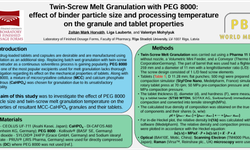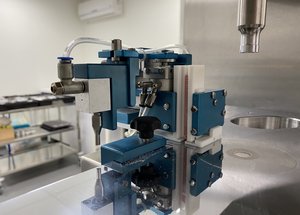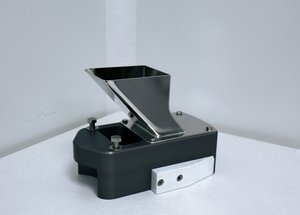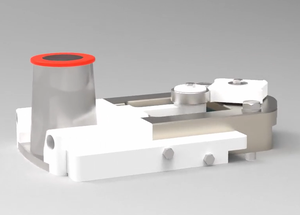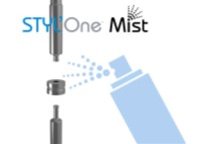Scientific papers
The occurrence of punch sticking poses a recurrent challenge in the pharmaceutical tablet manufacturing process. The moisture content of the powder plays a crucial role in the development of sticking; as tablet temperature rises, powder moisture evaporates, accumulates at the punch–tablet interface, and contributes to sticking through capillary force. This study aimed to explore the impact of compaction pressure (CP), compaction speed (CS), and lubrication level (magnesium stearate [MgSt] ratio) on tablet surface temperature (TST) and moisture content (TSMC). TST and TSMC were assessed using an infrared thermal camera and a near-infrared sensor, respectively. Microcrystalline cellulose served as the tableting powder, with MgSt acting as the lubricant.
In the examined low range of CS values (16–32 mm/s), no significant effects on TST and TSMC were observed. MgSt ratio demonstrated a notable positive influence on TST, possibly due to the increased effusivity of the powder blend with the addition of MgSt. However, MgSt ratio did not significantly impact TSMC. CP exhibited a significant positive effect on both TST and TSMC. The elevation of CP led to heightened heat generation through particle deformation and friction during compaction, resulting in increased TST. Additionally, the rise in thermal energy might have accelerated the water vapor diffusion rate through the powder bed, contributing to further moisture accumulation at the tablet–punch interface. This cumulative effect of CP on TSMC provides insights into the occurrence of sticking, irrespective of the applied CP during the tablet manufacturing process.
Comments
No comments posted yet.
Add a comment


